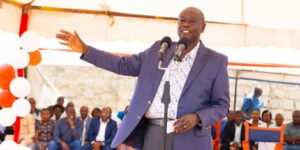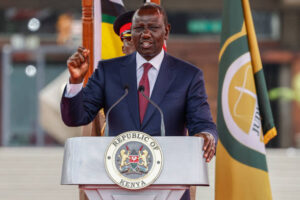
By Thomas Mauko
The formation of a national multi-sectoral forum has sparked debate, with some opposition leaders questioning its timing and intentions.

President William Ruto and opposition leader Raila Odinga agreed to a six-day national dialogue to discuss issues facing Kenyans, with participants bearing their own attendance costs.
Ruto announced that the forum will include representatives from political parties, religious groups, civil society, employers, and youth. Stakeholders are required to submit their representatives by Friday ahead of the forum’s commencement on Monday, which aims to propose a way forward for the country.
However, the decision has been met with criticism from some leaders who accuse the political class of hijacking a movement initiated by Generation Z. While many Kenya Kwanza leaders welcomed the announcement, Raila’s Azimio coalition expressed discontent.
Narc Kenya leader Martha Karua, a mediator in the 2007 political crisis, emphasized that meaningful dialogue requires good faith and genuine concern for the people’s interests. Jubilee Secretary General Jeremiah Kioni suggested that the initiative was a strategic move to maintain the status quo, questioning the real intentions behind the dialogue.
Kioni pointed out that past reports, such as the Waki, Ndungu, TJRC, BBI, and Nadco reports, have been neglected, gathering dust on government shelves. He urged for the implementation of the Constitution instead of more dialogues.
Former Defence Cabinet Secretary Eugene Wamalwa dismissed the initiative, highlighting the demand for action rather than dialogue forums that he believes will only benefit a few politicians. He expressed his party’s refusal to participate in what he termed as “rot.”
Wiper leader Kalonzo Musyoka urged the government to address the people’s concerns, noting that the Gen Z movement had set the agenda. He criticized the Ruto regime for its inaction on the cost of living and failure to implement the NADCO Report, attributing the current crisis to this inaction.




